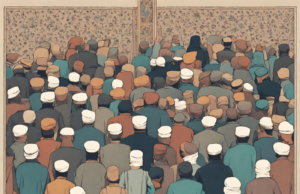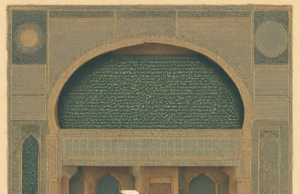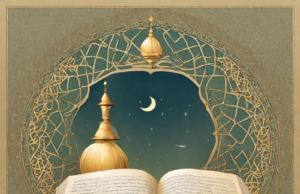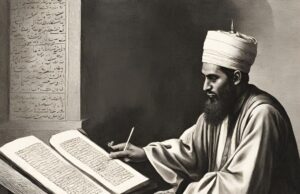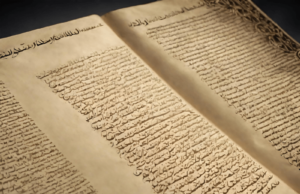Did the Prophet (s) and the Aimmah (as) have knowledge of...
Delving into the theological inquiry regarding the extent of knowledge possessed by Prophet Muhammad and the Imams in Shia Islam. Drawing upon Quranic verses, Hadiths, and scholarly interpretations, it explores the concept of 'ilm al-ghayb (knowledge of the unseen) and invites readers to ponder upon the nature of prophetic knowledge and its implications for understanding the role of the Prophet and the Imams within Islamic tradition. Part 1 initiates a broader discourse on the subject, paving the way for deeper exploration in subsequent installments.
Is Istighatha (invoking other than Allah) considered Shirk (Part 1)?
This post delves into the theological debate surrounding the concept of Istighatha in Islam, particularly regarding its potential classification as shirk (associating partners with Allah). It aims to provide clarity on this contentious issue, inviting readers to critically evaluate the theological implications of invoking beings other than Allah. By delineating the boundaries of permissible invocation within Islamic doctrine, the article encourages a deeper understanding of Tawhid (the oneness of Allah) and its implications for Muslim belief and practice.
Dua to other than Allah? Tawassul or Istighathah?
Exploring the practice of Dua to entities other than Allah, this article investigates concepts like Tawassul and Istighathah within Islamic theology. It delves into the theological debates surrounding these practices, examining their validity in light of clear-cut teachings of Quran and Ahl al-Bayt. Through critical analysis, it seeks to provide clarity on the permissibility and boundaries of such supplications, fostering a deeper understanding of Islamic beliefs and practices related to invoking divine assistance.
Imam ʿAlī’s (as) own view of Leadership: Divine Appointment or Shūrā-based...
A Critique of the Current-day Popular Shīʿa Narrative on Divine Appointment of Amīr al-Mu’minīn Imam ʿAlī bin Abī Ṭālib (as)
The current-day, popular narrative on...
What is Ghuluww (Exaggeration) in Religion?
Delving into the concept of Ghuluww, this article examines the thin line between religious fervor and extremism. Through historical and contemporary examples, it highlights the detrimental effects of exaggerated religious practices on communities. Advocating for moderation and tolerance, it encourages a balanced approach to faith. This insightful exploration urges readers to reflect on the importance of maintaining harmony and understanding within religious contexts.
Why is Dua to ‘Other than Allah’ forbidden across Ghayb (unseen)?
Download PDF
WHY IT IS CRUCIAL TO USE THIS PHRASE WHEN APPROACHING QUR’ĀNIC VERSES ABOUT DUʿĀ’ AND ISTIGHĀTHA.
The phrase ‘across the curtain of Ghayb (barrier...
Did the Aimmah (AS) know the deeper meaning (Ta’wil) of every...
This article explores the extent of the Prophet Muhammad's and subsequent Imams' knowledge regarding the deeper interpretations (Ta’wil) of Quranic verses. It examines the varying opinions among Islamic scholars regarding the scope of their understanding, referencing Hadiths and historical accounts. While some scholars argue for the comprehensive knowledge of the Prophet and Imams in all matters, including Ta’wil, others assert that their understanding was limited to what was explicitly revealed to them.
How and why were the narrations from the Aimmah (as) fabricated?
This post investigates the phenomenon of fabricated narrations attributed to the Imams in Shia Islam. It delves into issues surrounding the authentication of Hadiths, and the motives behind the fabrication of these narrations, ranging from political agendas to sectarian biases. It encourages readers to engage critically with Hadith sources and to discern authentic traditions from spurious ones. It underscores the importance of scholarly rigor in preserving the integrity of Islamic teachings and upholding the authority of genuine narrations from the Imams.
Waṣiyyah of Imām ʿAlī (as) on his deathbed.
The waṣiyyah of Imam ʿAlī (as) is a profound testament to his commitment to the core teachings of Islām, emphasizing the importance of tawḥīd, the prophethood of Muḥammad ﷺ, and the ethical and moral principles outlined in the Qur’ān. Despite being transmitted in both Shīʿa and Sunnī sources, the waṣiyyah remains free from sectarian additions, focusing instead on universal Islāmic values. It serves as a reminder of the pre-sectarian and non-sectarian Islam that Imam ʿAlī upheld, urging Muslims to unite under the banner of faith and piety.
Is Istighatha (invoking other than Allah) considered Shirk (Part 2)?
Part 2 delves deeper into scholarly perspectives and Quranic references, providing a comprehensive analysis of Istighatha within Islamic doctrine. Drawing upon Hadiths and classical jurisprudence, the article scrutinizes diverse viewpoints, aiming to elucidate the nuanced understanding of seeking help from entities other than Allah. It encourages readers to engage thoughtfully with the theological implications of invoking beings other than Allah.



